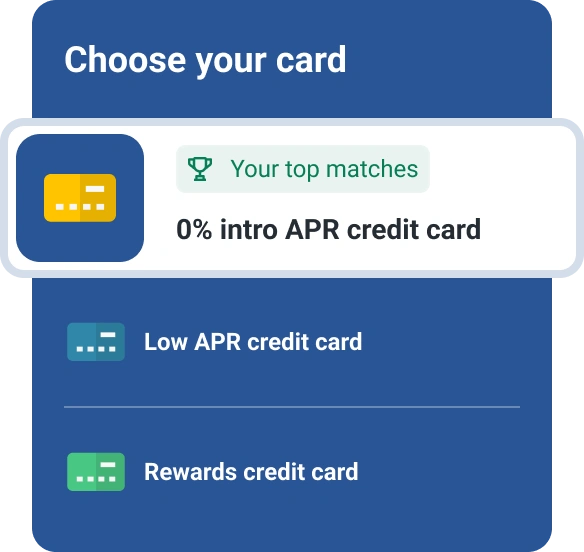How to Avoid Paying Credit Card Interest
Quick Answer
You can avoid credit card interest by paying your balance in full each month, avoiding cash advances, using 0% intro APR and balance transfer promotions wisely and relying on a budgeting app to stay on top of your spending.

Credit cards provide a convenient and often rewarding way to spend, but the cost of carrying a balance can be significant. The average credit card interest rate has exceeded 20% since 2023, according to the Federal Reserve.
Fortunately, there are several ways to take advantage of the benefits credit cards have to offer without paying a penny in interest charges. Here's what you need to know.
5 Ways to Avoid Credit Card Interest
Credit card interest can take a toll on your financial well-being and, in some cases, even trap you in a cycle of high-interest debt. Whether you're new to credit cards or you've been using them for years, here are five ways to steer clear of interest charges.
1. Pay Your Bill in Full Each Month
Most credit cards offer a grace period, which lasts at least 21 days starting from your monthly statement date. During this time, you can pay your full balance without incurring interest on your purchases.
Using this grace period strategically is an excellent way to manage your income and expenses. But, it's critical that you set up payment alerts or automatic payments to make sure you pay on time.
If you carry even a small balance from one month to the next, you may lose your grace period on new purchases—meaning they'll start accruing interest immediately—until you pay the balance in full.
2. Avoid Cash Advances
Unlike new purchases, cash advances don't get a grace period. What's more, the annual percentage rate (APR) on cash advances is often higher than the rate you'll pay for purchases, and you'll also typically be assessed a cash advance fee, typically 3% to 6% of the advance amount.
For these reasons, it's best to avoid cash advances unless the only alternative is even costlier, such as a payday loan.
3. Use 0% Intro APR Periods Wisely
Many credit cards offer a 0% introductory APR promotion on new purchases. These promotions make it easier to finance large expenses and pay them down over time without having to worry about interest.
Depending on the card, the 0% intro APR promotion can last anywhere from six to 21 months. If you don't pay off your purchases in full by the end of the introductory period, the card issuer will begin to charge interest on the remaining balance.
Regardless of how long your promotion is, make a plan before you get the card to pay it in full before the 0% intro APR period ends.
This is especially important with some store credit cards that use a deferred interest arrangement instead of a true 0% intro APR promotion. If you don't pay off the balance on a deferred interest plan, the card issuer will charge interest retroactively based on the original balance.
4. Utilize Balance Transfers
If you have a sizable balance on one or more of your credit cards, paying it off will likely take time. If your credit score is in good shape, consider applying for a credit card that offers a 0% introductory APR promotion on balance transfers.
With this feature, you can move some or all of your balance over to the new card and get anywhere between 12 and 21 months to pay it off interest-free.
Keep in mind, though, that balance transfer cards typically charge an upfront fee of 3% to 5% of the transfer amount.
5. Use a Budgeting App
Using a budgeting app can make it much easier to avoid paying credit card interest by helping you stay on top of your spending and payment habits. These apps give you a clear view of where your money goes each month, allowing you to spot patterns before they lead to a balance you can't pay off in full.
Some budgeting tools can even sync directly with your credit cards and bank accounts so you see how your purchases add up and how much you can safely spend while still paying your bill in full each month.
By tracking your income, expenses and payments in one place, a budgeting app helps keep you organized, accountable and less likely to carry a balance that accrues costly interest.
How to Lower Your Credit Card APR
Taking advantage of your credit card's grace period is a great way to avoid interest charges, but there's always the possibility of paying interest, so it's still a good idea to look for opportunities to lower your APR. Here are some options to consider:
- Ask your card issuer to lower your interest rate. Some credit card companies may be willing to lower your interest rate, especially if your credit has improved since you first opened the account.
- Apply for a new card. If you can't get the results you want on your existing cards, you may be able to qualify for a lower interest rate on a new credit card and start using it instead. For example, credit unions tend to offer lower interest rates than banks and are legally required to cap their APRs at 18%.
- Improve your credit. If you haven't already, take the time to work on building your credit score. This will give you more opportunities to obtain a lower credit card APR in the future.
How to Reduce Credit Card Interest
If you're carrying a credit card balance, there are several ways to lower what you pay in interest and get out of debt faster:
- Make multiple payments each month. Paying more than once a month helps reduce your average daily balance, which can cut the amount of interest that accrues.
- Follow a debt repayment strategy. Use the debt avalanche or debt snowball method to stay organized and motivated.
- Consolidate with a personal loan. A lower-interest personal loan can replace multiple high-rate credit cards, simplifying repayment and potentially saving you money on interest.
- Use savings strategically. Paying off a chunk of your balance with savings can immediately reduce interest costs. Just be sure to keep your emergency fund intact.
- Transfer to a 0% intro APR credit card. A balance transfer card can give you a limited interest-free period to pay down debt faster, though transfer fees may apply.
- Consider credit counseling. A nonprofit credit counseling agency can help you create a budget, advise you about debt management strategies or set up a debt management plan to help you tackle your debt.
Compare personal loan rates
Find APRs from 4.99% to 35.99% and flexible terms of 12 to 120 months. Loan amounts range from $1,000 up to $250,000, with funding available the same day or up to 3 days.
Offers from our partners
View all of our Best Personal Loans for 2026 to see what you’re likely to qualify for, and the rates and terms you might get.
Prioritize Your Credit Score
While there are several different steps you can take to keep your credit card interest in check, one of the best approaches is to build your credit history. The better your credit score, the easier it will be to qualify for lower interest rates, 0% intro APR and balance transfer credit cards and debt consolidation options that can help you save money.
As you work to build credit, Experian's credit monitoring service can help you keep track of your progress by providing free access to your FICO® ScoreΘ and Experian credit report, as well as real-time alerts to keep you up to date on changes to your credit report.
Discover low interest credit cards
Keep more cash in your wallet with a low interest credit card. See what offers you qualify for based on your FICO® Score.
See your offersAbout the author
Ben Luthi has worked in financial planning, banking and auto finance, and writes about all aspects of money. His work has appeared in Time, Success, USA Today, Credit Karma, NerdWallet, Wirecutter and more.
Read more from Ben

